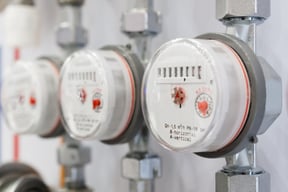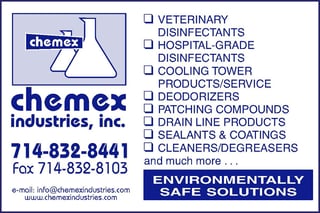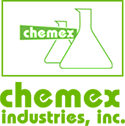The Benefits of Using a Bonding Agent for Water Utility Companies
Does your agency require NSF/ANSI 61?
Water utility companies are responsible for providing clean, safe water to their customers. To achieve this goal, they must ensure the integrity and safety of their infrastructure. One way to do this is by using a bonding agent. A bonding agent helps to bond various components together in a water utility system, creating a connection between them that can protect against corrosion, increase the longevity of components, and improve overall performance.

Bonding agents provide numerous benefits for water utility companies, including:
- Bonding agent for concrete repairs
- Coating and sealing interior or exterior slabs
- Mortar repair material (when mixed with dry silica sand)
- Improved Efficiency – By forming connections between multiple parts within the system, such as piping and tanks, it’s easier for engineers to detect problems early on before they become major issues. This can help reduce repairs and maintenance costs, as well as improve the overall efficiency of the system.
- Reduced Corrosion – Bonding agents form a protective coating on pipes and other components that can reduce corrosion and maintain the integrity of the system for longer periods of time.
- Enhanced Safety – Bonding agents provide protection due to faulty wiring or equipment malfunctions, making water utility systems safer for both customers and employees.
For these reasons, using a bonding agent is an important part of ensuring that water utility companies are providing quality service to their customers. Not only does it help protect their infrastructure from damage, but it also helps make sure that their customers have access to safe, clean water.
In order to ensure that your water utility company is providing the safest, most reliable service possible, it’s important to use a bonding agent that meets the highest standards of safety and quality. UL Certified – Drinking Water System Components and NSF/ANSI 61 certification are two widely accepted standards in the industry. UL Certified components have been tested for their ability to withstand corrosion and other environmental hazards, while NSF/ANSI 61 certification ensures that all components meet stringent health-based requirements for lead content. By using a bonding agent with UL Certification and NSF/ANSI 61 certification, you can rest assured knowing that your water utility system will provide safe, clean drinking water for years to come.
We offer a Two Component, 100% solids, 1:1 mix ratio epoxy that is designed to meet the requirements of Drinking Water System Components to NSF/ANSI 61 & Lead-Free to NSF/ANSI 372 and provides excellent adhesion and sealing capabilities for concrete projects. Our Bonding Agent is UL certified and ensures surfaces remain water-resistant while protecting them from chemical attack, wear and tear, and UV radiation.
- Acceptable for use in USDA-inspected facilities
Conclusion
Bonding agents are an essential part of any water utility company looking to improve their infrastructure while ensuring customer safety. Bonding agents create powerful connections between various components which can help to protect against corrosion and help maintain the integrity of your system for longer periods of time. Make sure you use a bonding agent that meets UL Certification and NSF/ANSI 61 standards so you can rest assured knowing that your water utility company is providing safe, reliable service to its customers. Don’t wait – make sure your water utility system is protected with a Certified Bonding Agent today!
See More Information on our website

